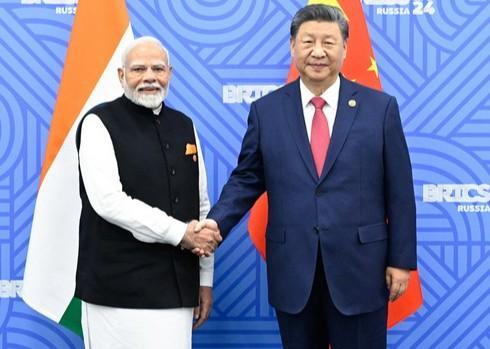
China Relaxes Urea Export Curbs on India: Reports
In a significant development, China has reportedly relaxed the restrictions on the export of crop nutrient urea to India, signaling an improvement in India-China ties. This decision is expected to benefit India, which leads the world in global urea imports, and is likely to buy as much as 300,000 tons of the crop nutrient, according to a recent report by Bloomberg.
The relaxation of urea export curbs comes amidst a thawing of political ties between the two nations. In a surprising turn of events, India has also shipped diesel to China for the first time in over four years, demonstrating the growing cooperation between the two countries.
China’s decision to relax the urea export curbs is seen as a significant step towards normalizing trade relations between the two nations. Urea is a critical crop nutrient used in agriculture, and its availability is crucial for farmers to maintain crop yields and ensure food security. The relaxation of curbs on urea exports is expected to benefit Indian farmers, who have been facing a shortage of the nutrient in recent times.
The development is also seen as a positive indicator of the improving relations between India and China. The two nations have been engaged in a series of diplomatic efforts to improve ties, which had been strained in recent years over issues such as border disputes and trade tensions. The recent decision to relax urea export curbs is seen as a significant step towards normalizing trade relations and building trust between the two nations.
India’s urea imports have been rising steadily over the years, making it the largest importer of urea in the world. The country’s urea requirements are met primarily through imports, as domestic production falls short of meeting the demand. The relaxation of urea export curbs by China is expected to provide a much-needed boost to India’s urea imports, helping to meet the country’s growing demand for the crop nutrient.
In addition to the relaxation of urea export curbs, India has also shipped diesel to China for the first time in over four years. This development is seen as a significant step towards normalizing trade relations between the two nations. The diesel shipment is expected to help Chinese refineries meet their growing demand for the fuel, which is critical for the country’s transportation and industrial sectors.
The development is also seen as a positive indicator of the improving relations between India and China. The two nations have been engaged in a series of diplomatic efforts to improve ties, which had been strained in recent years over issues such as border disputes and trade tensions. The recent decision to ship diesel to China is seen as a significant step towards normalizing trade relations and building trust between the two nations.
The relaxation of urea export curbs and the shipment of diesel to China are significant developments in the context of India-China relations. The two nations have been engaged in a series of diplomatic efforts to improve ties, and these developments are seen as a positive indicator of the progress being made.
In recent years, India-China relations have been strained over issues such as border disputes and trade tensions. The two nations have been engaged in a series of diplomatic efforts to improve ties, including talks between the two countries’ foreign ministers and defense ministers. The recent development is seen as a significant step towards normalizing trade relations and building trust between the two nations.
In conclusion, the relaxation of urea export curbs by China and the shipment of diesel to China are significant developments in the context of India-China relations. The two nations have been engaged in a series of diplomatic efforts to improve ties, and these developments are seen as a positive indicator of the progress being made. The relaxation of urea export curbs is expected to benefit Indian farmers, who have been facing a shortage of the crop nutrient in recent times. The shipment of diesel to China is also seen as a significant step towards normalizing trade relations and building trust between the two nations.



